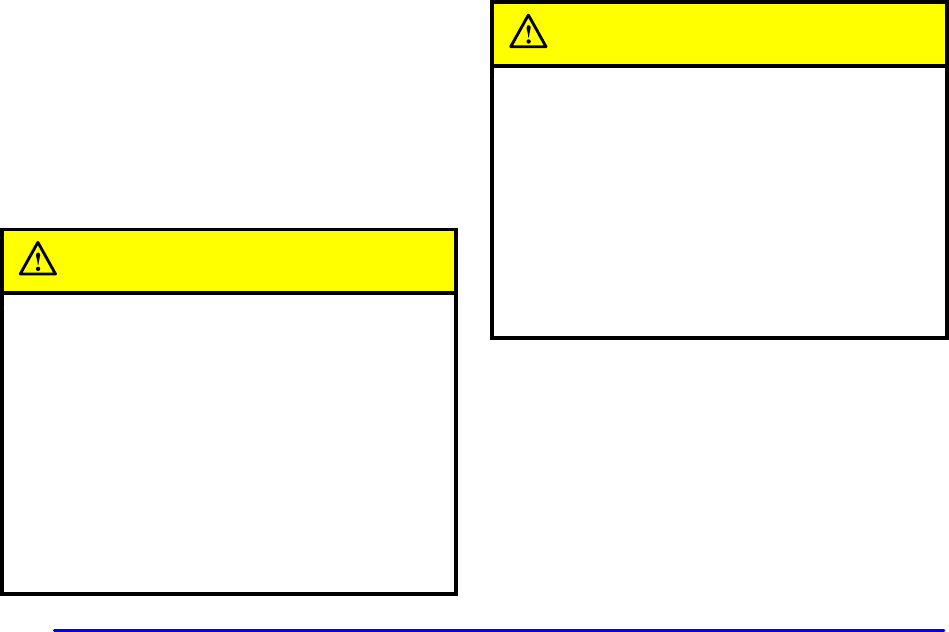
1-44
Where to Put the Restraint
Accident statistics show that children are safer if they
are restrained in the rear rather than the front seat.
General Motors, therefore, recommends that child
restraints be secured in the rear seat including an infant
riding in a rear
-facing infant seat, a child riding in a
forward
-facing child seat and an older child riding in
a booster seat. Never put a rear
-facing child restraint
in the front passenger seat. Here’s why:
CAUTION:
A child in a rear-facing child restraint can be
seriously injured or killed if the right front
passenger’s air bag inflates. This is because the
back of the rear
-facing child restraint would be
very close to the inflating air bag. Always secure
a rear
-facing child restraint in a rear seat.
You may secure a forward-facing child restraint
in the right front seat, but before you do, always
move the front passenger seat as far back as it
will go. It’s better to secure the child restraint
in a rear seat.
CAUTION:
A child in a child restraint in the center front seat
can be badly injured or killed by the right front
passenger air bag if it inflates. Never secure a
child restraint in the center front seat. It’s always
better to secure a child restraint in the rear seat.
You may secure a forward
-facing child restraint
in the right front passenger seat, but before you
do, always move the front passenger seat as far
back as it will go. It’s better to secure the child
restraint in a rear seat.
Wherever you install it, be sure to secure the child
restraint properly.
Keep in mind that an unsecured child restraint can move
around in a collision or sudden stop and injure people in
the vehicle. Be sure to properly secure any child
restraint in your vehicle
-- even when no child is in it.


















